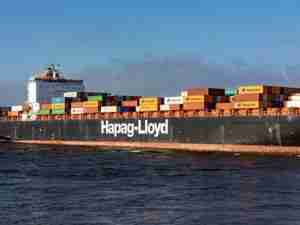Bill Todd, Business Development Manager CHB, for CargoWise edi, a leading provider of integrated international supply chain logistics management systems, says importers and customs brokers that have not yet implemented new data entry software to comply with the U.S. Customs and Border Protection (CBP) Agency's Secure Freight Initiative should act now in order to meet full compliance status, which becomes mandatory in January 2010.
Todd points out that: 'Importers and customs brokers that have begun the software implementation process to meet the new supply chain data filing requirements are well-positioned to meet the CBP deadline. However, those companies that do not yet have the proper software systems in place will need to act fast in order to become compliant in time."
Todd reminds importers and customs house brokers that the CBP directive initiated in January 2009 requires much more detailed regulatory data to be provided as the new security measures push information gathering and data entry deeper into the global supply chain. For that reason, it is important for importers and customs brokers that have not done so to implement ISF software and begin the interim filing process as soon as possible.
He suggests several steps companies should take to expedite more accurate and timely ISF filings as we near the half-way point of the interim period:
- Each importer or customs house broker should familiarize themselves with exactly what data is required under the new regulations. They should establish a software vendor selection criterion that identifies a provider based on its CBP knowledge, quality of product, ease-of-use and a robust Web interface for customer data entry that will enable them to file directly with CBP or simply enter information for their vendor to review.
- Take time to evaluate the reporting process you put in place. The best time to do this is during the interim testing period, rather than waiting to begin once it is mandatory. Working closely with your software provider will enable you to better educate yourselves to the complexities of the ISF filing. For instance, the CBP wants bills of lading to be entered at the lowest point of origin within the Automated Manifest System (AMS) and filed on AMS-compatible software. This means that if a House bill of lading is on the shipment, that bill of lading number must be transmitted to CBP in order to be accepted.
- Through the testing process, ensure you will be ready to meet deadlines with accurate data. Timeliness of the filings is critical to the process. During the interim period CBP will monitor all ISF submissions for timeliness, accuracy and completeness. They will work with ISF filers in order to help organizations adhere to the new requirements.
- Make good use of the testing period to identify and address any problems. CBP advises that many of the rejections it has received during the interim period are due to duplicate filings that are sent multiple times because of filers' uncertainties about the data being transmitted. If you feel information is incomplete or inaccurate, you can revise your ISF filings by re-sending the data if certain elements change.
- Once you have established and successfully tested your data reporting system, be sure to communicate clearly to your customers how the process works. They will have to provide you with the ISF reporting data, so make sure they know what documentation is required and what timelines are involved.
"By implementing a software solution as soon as possible and obtaining a good understanding of the ISF implementation process, your company can be well prepared for meeting the filing requirements,' summarizes Todd. 'And in doing so, your systems will perform better and you will be able to add value for your clients by offering the tools they need to properly file."
Todd also points out there has been some concern expressed by customs brokers and impo









